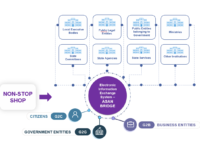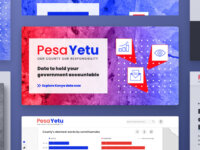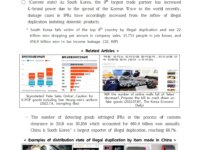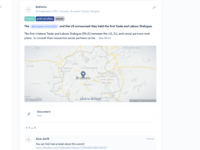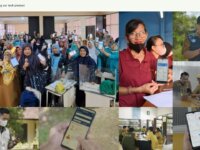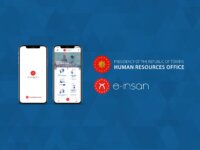The E-Gov Development Center has developed a new information exchange tool named ASAN Bridge in order to enable government organizations to transfer the necessary data to each other in more stable, secure and prompt ways. Through the assistance of this system, the key development challenge in the country was addressed by simply enhancing the safety and efficiency of the procedures and serving citizens better.
Innovation Tag: Data
Public sector agencies are generating more video/image data but much of the data is not leveraged due to the high overheads and custom requirements in processing video. The VAS platform provides easy access to a spectrum of in-house and industry developed video analytics capability as well as model prototyping capabilities for agency use cases. The key innovation focus on bringing together a scalable platform, lowering the barrier of entry for usage of video analytics, empowering the pub
In Kenya, it remains difficult for both watchdogs and citizens to understand how financial resources are utilised since it decentralised services from national to county-level governments in 2013.
PesaYetu is a data visualisation website designed to easily explore, interpret and report on budget-driven stories affecting counties. The primary audience is researchers and journalists who want to empower citizens at the county level to engage their leaders on issues concerning policy and governance
TCS is part of the Government Data Architecture initiative to enable secure data sharing and usage across public service, built upon an integrated data management framework that manages the data lifecycle effectively from acquisition to destruction. It is a one-stop central sensor data platform that provides end-to-end data sharing services with exploitation environment.
A proof of concept has been created to incorporate design techniques in many elements of a PoD's life cycle, planning for future demands and overcoming existing hurdles. The proposed strategy prioritizes the needs of persons with disabilities and helps them acquire the resources and services they need. It also helps families gain confidence in caring for a disabled kid. This helps POD engage, lead, create, and sustain life.
Trend Atlas is a digital, interactive platform with rich insights on local and global trends and emerging signals to inform strategic planning, policy development and service redesign. It reduces research time, rework and duplication by breaking down information silos with centralised data and evidence. Built by policy people who upskilled in digital, it combines automation and curation with a sustainable contributor model to create a collaborative and trusted strategic intelligence service.
The project is subject to uncovering illegal duplication in advance from overseas inflow through the AI Reading System in the process of customs clearance cooperated with Korea Customs Service. No. of uncovering illegal duplication per annum exceeds 400,000 cases and the demand for AI system is high due to lacking manpower for customs inspection and the explosive increase in importing goods. This AI system has been developed from 2020, and proving its performance in two customs office in Korea.
Anticipate is a tech-enhanced tool for context monitoring and early warning of conflict. Anticipate fights bias in analysis by encouraging analysts to be forward-looking and removing echo-chambers. It hosts data collection, political-economic analysis, and anticipation in one place. As such, it is a one-stop shop for the public sector to develop policy.
GovTech Edu works with the Indonesia MoECRT to build a technology ecosystem to create an irreversible transformation for Indonesia’s education system. It includes tech platforms made available for teachers, school principals, university students & practitioners, through products like Teacher SuperApp, Education Scorecard & University Internship Matchmaking Platform. With these, the transformation to improve student learning outcomes becomes more inclusive, data driven & impact-enabling at…
e-insan is an integrated platform, offering a wide range of services based on equal opportunity and accessibility for employment and lifelong professional development. In addition, it supports data-driven decision-making processes. The platform provides job and internship opportunities, online training for employees, and many contents of career development for youth and creates a talent pool with verified data. Blockchain-supported e-insan increases efficiency and transparency in HR management.

